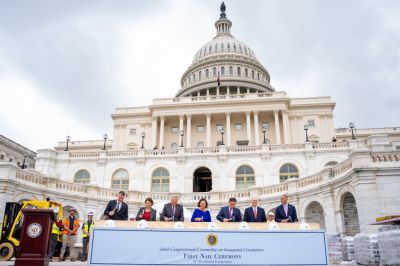Happy Monday! Someone should check on the person running social media for the Chicago White Sox, currently tied for the Major League Baseball record for most losses in a single season—with six games left to play. The team’s account has stopped tweeting the scores of its games, opting instead for a lot of words to say, “We lost.”
September 18: “FINAL: the other team scored more runs than us.”
September 20: “FINAL: the number of runs we scored was not greater than the number of runs they scored.”
September 21: “FINAL: can be found on the MLB app.”
Quick Hits: Today’s Top Stories
- A rare daytime airstrike on Beirut, Lebanon, on Friday by the Israel Defense Forces (IDF) killed several top commanders of Hezbollah—the Iranian-backed, Lebanon-based terrorist group—as well as more than a dozen terrorist operatives gathered. Lebanese government authorities claimed 37 people in total were killed in the attack, including three children. IDF spokesman Daniel Hagari said the Hezbollah militants were sheltering beneath a residential building—accusing them of using Lebanese civilians as “human shields”—and were planning an attack “to infiltrate Israeli communities and kidnap and murder innocent civilians in a similar manner to the October 7 Massacre.” On Monday morning, the IDF conducted a series of airstrikes across Lebanon, hitting more than 300 targets in what it described as a preemptive measure to thwart a large-scale rocket attack by Hezbollah. The Iran-backed group launched more than 100 rockets into northern Israel early Sunday morning, with some hitting near the northern Israeli city of Haifa. The barrages, Hezbollah’s deepest since it began firing on Israel nearly a year ago, injured four people and led to a fatal car accident after air raid sirens caused a teenage driver to panic.
- The IDF also said on Friday it had opened an internal investigation following viral video footage of what appeared to be several IDF soldiers improperly handling bodies—including throwing and dragging them off a rooftop—in the West Bank city of Qabatiya. In a separate statement, the IDF confirmed that its forces killed seven armed terrorists in Qabatiya on Thursday—four killed from gunfire and three killed by an Israeli airstrike—and arrested seven other suspected terrorists.
- Sri Lankan voters on Saturday elected Anura Kumara Dissanayake—a candidate from the Marxist-Leninist Janatha Vimukthi Peramuna party—as the country’s next president. The 55-year-old Dissanayake—a member of the Sri Lankan parliament since 2015—led with 42.3 percent of the first-round vote and secured 55.9 percent in the second round of voting. The leftist defeated parliamentary opposition leader Sajith Premadasa and current Sri Lankan President Ranil Wickremesinghe, in addition to dozens of lesser-known candidates. The presidential election is Sri Lanka’s first since protests against the country’s poor economic conditions in 2022 forced its then-President Gotabaya Rajapaksa to resign.
- French President Emmanuel Macron on Saturday announced cabinet appointments to complete the country’s new government after he had appointed right-of-center former Brexit negotiator Michel Barnier, a Républicain, as prime minister earlier this month. The new ministers include members of both Macron’s centrist Renaissance Party and the right-of-center Républicain Party. The two parties—which came in second and fourth place, respectively, in France’s July parliamentary elections that saw no party achieve a majority—will seek to form a governing majority in the country’s parliament.
- European Commission President Ursula von der Leyen announced on Friday that the European Union had finalized a proposal to loan Ukraine $39 billion to prop up its economy and energy infrastructure, underwritten by windfall profits from frozen Russian assets. G7 nations—which include the U.S. and several EU members—had planned to use Russian assets in Western banks and clearinghouses to provide a $50 billion loan to Ukraine.*
- Meanwhile, Ukrainian President Volodymyr Zelensky traveled to the United States on Sunday, visiting a munitions factory in Scranton, Pennsylvania, that has produced shells for Ukrainian forces. Zelensky is scheduled to meet with President Joe Biden, Vice President Kamala Harris, and former President Donald Trump later this week, as well as visit New York City for the United Nations General Assembly meeting.
- A summary of an internal Secret Service investigation released on Friday said that Secret Service personnel assigned to former President Donald Trump suffered from “communication gaps” with local law enforcement and a “lack of due diligence” ahead of the attempted assassination of the GOP presidential candidate at a July 13 campaign rally in Butler County, Pennsylvania. The Secret Service added it is currently reviewing accountability measures in light of the report’s findings. “What has become clear to me is that we need a shift in paradigm in how we conduct our operations,” acting Secret Service Director Ronald Rowe said in a statement.
- The Federal Trade Commission (FTC) on Friday sued three of the largest pharmacy benefit managers (PBMs)—CVS, Cigna, and UnitedHealth Group—alleging that they have engaged in illegal anticompetitive practices that have raised the price of insulin. The FTC accused the three companies—which the complaint says administer a combined 80 percent of all U.S. prescriptions—of prioritizing higher-priced products while brokering prescription insulin. The two Republicans on the committee recused themselves from the vote to file suit against the three companies, while the three Democrats voted in favor. The companies named in the suit pushed back on the FTC characterization of their actions, with a UnitedHealth representative saying the “baseless” action “demonstrates a profound misunderstanding of how drug pricing works.”
- CNN reported Sunday that Angela Alsobrooks—the executive from Prince George’s County and Democratic Senate candidate from Maryland—claimed a series of tax property deductions for which she did not qualify. The alleged property tax violations include claiming a senior citizen tax break on a property in Washington, D.C., that she did not qualify for—saving her about 50 percent in taxes on the property—while also claiming primary residency in two separate properties in D.C. and Maryland. A senior adviser to Alsobrooks’ senatorial campaign has since said the candidate was unaware of any property tax violations she committed and is working with officials to resolve the issue.
- Kentucky District Judge Kevin Mullins was shot and killed on Thursday by local Sheriff Mickey Stines, who then turned himself in and was charged with first-degree murder. Law enforcement officials said Stines shot Mullins inside the Letcher County Courthouse after a dispute, but it remains unclear what sparked the argument. The pair had reportedly eaten lunch together earlier that same day.
Battle for Congress Heats Up

The last 90 days have been a wild political ride. Stable electoral trends have been mugged by the reality of events, from nominee switches to assassination attempts. But despite the near-daily churn, the presidential race remains incredibly close: The meta trend of negative polarization remains undefeated.
But downballot races are still very much in flux as the Democratic and Republican parties battle for congress majorities. Control of both the House and the Senate will come down to just a handful of contests, and how candidates in those contests run the final leg of their races will determine whether the 47th president—whoever he or she is—has a rubber stamp or a meaningful check on the other end of Pennsylvania Avenue.
In several states, early voting is already underway. In Fairfax County, Virginia, for example—where a Senate seat is up for grabs—the number of ballots cast on the first day of in-person early voting nearly quadrupled the 2020 figure, serving as a reminder that we now have an election season, rather than an election day.
What do the polls say about each party’s chances of winning a majority in either congressional chamber? Like the presidential race, the battle for congressional control is tight—but more so in the House than the Senate. Republicans currently control 220 seats in the lower chamber to 211 Democrats.
Polls should always be taken with a grain of salt, but they remain the best metric for projecting party control. “We continue to view the race for the chamber as effectively a 50-50 proposition,” election analysts for Larry Sabato’s Crystal Ball wrote on Thursday. The group adjusted its ratings for five races last week—including in California, New York, and Alaska—but despite the changes, control of the chamber remains a toss-up.
House race ratings from the leading election analysis shops—including Crystal Ball, the Cook Political Report with Amy Walter, and Inside Elections with Nathan L. Gonzales—put around 20 races in toss-up territory. Crystal Ball considers 19 races to be toss-ups. If Republicans won half of the tossups, either nine or 10, they’d retain their majority. But the group doesn’t believe that’s the most likely scenario. “In our own back of the envelope accounting of these races, our best guess is that the Democrats would do better than just splitting the toss-ups, putting the overall race for the House right on the edge of the 218 seats either side needs for the majority,” they concluded. “We continue to not see a favorite in the House.”
Inside Elections has slightly favored Republicans keeping control of the lower chamber in their September update. It forecasts a 221 to 214 Republican-Democrat split. But in a sign of how close the battle is, both parties’ House campaign committees claimed good news from the analysis.
Unsurprisingly, several of the 20-or-so toss-up races are in swing districts in battleground states like Michigan, Arizona, North Carolina, and Pennsylvania. But the contests in coastal blue states like New York and California will also be nail-biters as the GOP tries to protect ground gained in the 2022 midterm elections. Republicans won in districts near New York City and Los Angeles that helped the party secure their current House majority. Of the 18 districts that voted for President Joe Biden in 2020 and a Republican member of Congress in 2022, 11 are in either New York or California.
Democratic incumbents’ victories in 2022 helped take the juice out of the much-ballyhooed “Red Wave,” as the Cook Political Report’s Erin Covey noted Friday. But several of those incumbents in swing House districts have decided not to mount reelection bids this year, mostly opting instead to run for the Senate or statewide office. The vacated seats offer a potential opening for Republicans. Michigan is of particular interest to the House GOP, because Democratic Rep. Elissa Slotkin is running for an open Senate seat and her colleague, Rep. Dan Kildee, is retiring.
Likewise, the leaders of the Democratic, centrist Blue Dog Coalition in the House—Reps. Mary Peltola of Alaska, Marie Gluesenkamp Perez of Washington state, and Jared Golden of Maine—all face coin-flip reelections. In the wake of the Biden-Trump debate, Perez and Golden were some of the earliest voices expressing concern about the potential for Biden to drag down Democrats’ chances of victory downballot.
Based on that math, Republicans are bullish. “We feel like the environment is in our favor,” National Republican Congressional Committee Chair Rep. Richard Hudson said last month. “We’re in a strong position to not just hold our majority, but we think we’re going to pick up seats.”
The GOP may indeed have a very slight edge, but any number of permutations in the toss-up races could push the majority into either party’s hands. “I think both sides are viewing this, really, as a district-by-strict slugfest,” Kyle Kondik, managing editor of Sabato’s Crystal Ball, told States Newsroom Thursday.
A potential government shutdown next week could prove to be a wrench in the works for House Republicans—14 Republicans killed a short-term funding bill on Wednesday backed by House Speaker Mike Johnson. Hudson’s Democratic campaign counterpart, Rep. Suzan DelBene of Washington state, said last month that part of her messaging strategy is portraying House Republicans as a chaotic conference that can’t govern effectively. “You’ve all seen it, from day one with 15 rounds of speaker elections, threats of shutdowns,” she said in August. “Those are the things that drive people at home crazy. They are like, ‘We need you to get work done that can make a difference for us. Go work, make that happen.’ And that’s a huge priority for us.”
The GOP is in a relatively stronger position to take control of the cooling saucer upper chamber—but not by much. Republicans received what amounts to a Senate seat “gimme,” thanks to West Virginia Sen. Joe Manchin’s decision to retire. Because Democrat-turned-Republican Gov. Jim Justice is almost guaranteed to win the seat in the ruby-red state, Democrats can’t afford to lose a single additional seat.
There are 23 Democratic senators up for reelection, but only 11 Republicans. If Republican incumbents simply win their races and the GOP picks up West Virginia, the Senate would be tied at 50-50—giving any future vice president the tie-breaking vote. If Republicans flip one more Democratic seat, then the GOP would have a majority no matter who wins the White House. “I think that this is the best map I’ve seen in a long time,” Senate Minority Leader Mitch McConnell said in February.
And indeed, Inside Elections, Cook, and Crystal Ball all believe that Republicans are likely to gain anywhere from one to four seats. Democrats were in a similarly tight position in 2022—unable to lose a single seat and retain control—but they ended up gaining a seat with Jon Fetterman’s victory over Mehmet Oz. But as Crystal Ball argued, “this is a more difficult map for Senate Democrats than 2022 was.”
“Any possible post-2024 Democratic Senate majority would be predicated on an amount of ticket-splitting that has just become much harder to come by,” the group added.
The most direct road to Republican control of the Senate runs through Montana where the Democratic incumbent Sen. Jon Tester faces an uphill battle against the National Republican Senatorial Committee’s (NRSC) handpicked challenger, Tim Sheehy. Sheehy is a former Navy Seal and aerospace executive who founded his own aerial firefighting company. The NRSC clearly thinks it found a winner, strongly opposing the very short-lived Republican Senate primary bid of Montana Rep. Matt Rosendale.
Tester has long defied political gravity in the deep red state, securing reelection since he first flipped the seat blue in 2006. Democrats have poured nearly $13o million into ad buys in Montana, making it the most expensive Senate campaign in history on a per-voter basis.
So tight is Tester’s race that the moderate Democrat has not yet endorsed his party’s nominee for president. He offered two reasons for withholding his explicit support last month. “Number one, I’m focused on my race,” he said in August. “And number two, folks want to nationalize this race, and this isn’t about national politics, this is about Montana. It’s about making sure we have a Montanan back in Washington, D.C., representing Montana values.”
Sheehy currently leads Tester by five points, according to RealClearPolling’s latest polling average and several analysts have now moved the race from the toss-up to the tilt or lean Republican category. Tester himself described the contest as a “margin-of-error race” earlier this month.
Democrats also face a close race in Ohio, where incumbent Sen. Sherrod Brown is trying to hold off his Republican challenger, Bernie Moreno. Brown holds a 3.6 percent lead in the polls, but the contest is currently considered a toss-up.
There’s a world in which Democrats could defy expectations, winning Montana and the rest of their battleground races in Pennsylvania, Ohio, Michigan, Wisconsin, Nevada, and Arizona. Alternatively, they could drop Montana and pull off an upset in Florida or Texas where incumbent GOP Sens. Rick Scott and Ted Cruz lack comfortable margins.
Though we’ve sworn off election predictions after the last three months of political news, it seems likely there will be a Republican Senate majority—setting up the all-important leadership fight—come January with the House, as ever, a more volatile picture.
Worth Your Time
- In the Times of Israel, our own Charlotte Lawson reports on the elderly Israelis forced to leave their homes in northern Israel. “Irit Efrati, a Kibbutz Dan resident since birth, recalls just one other instance in which she had to flee her northern border community: in 1948, as a seven-year-old during the Israeli War of Independence,” Charlotte wrote. “‘They took all of the kibbutz children and moved them to Haifa,’ the 83-year-old said from a hotel in the same city where, decades later, she once again found herself effectively a refugee in her own country after Hezbollah began firing on northern Israel last year on October 8. … The prolonged period of displacement has taken a particular toll on elderly evacuees, who lean on one another in the absence of the community and familial support systems they enjoyed back home. But for many of the displaced seniors, who have lived through and fought in various wars throughout the young country’s history, the abandonment of the north is more than just disruptive—it’s also profoundly unsettling to their core beliefs about the Israeli state.”
- In a gripping and deeply reported story for New York Times Magazine, Sarah A. Topol tells the story of a career Russian military officer who deserted. “Ivan didn’t spend time thinking about the morality of trying to flee despite sending other people to the front line,” she wrote. “This was the automatic reflex of a well-developed muscle of moral ambiguity. That’s not my area of expertise. I don’t care why the person didn’t show up for the service. The mere fact of not reporting for duty is a violation. I’m just doing my job. … This was never a story about heroes or bravery, a valiant victor or a helpless victim; from the beginning Ivan wanted me to make that clear. It is a story about the dangers of an act of independence after a life of conformity, and about how defection from Putin’s system is a sentence without end.”
Presented Without Comment
NBC News: Vance Says Allegations Against [North Carolina Lt. Gov. and GOP Gubernatorial Candidate] Mark Robinson ‘Aren’t Necessarily Reality’
“I don’t not believe him, I don’t believe him—I just think that you have to let these things sometimes play out in the court of public opinion,” Vance said. “He’s going to make whatever arguments he wants to make. I’m sure the news media and others are going to investigate these comments further.”
Also Presented Without Comment
Axios: Trump Says He Doesn’t See Himself Running In 2028 If He Loses In November
In the Zeitgeist
File this under “words we never thought we’d write”: Check out this new music from Mozart. You read that correctly. German archivists discovered the previously unknown, 260-year-old string trio composition from Wolfgang Amadeus Mozart in a library in Leipzig. It was performed live for the first time on Thursday in the composer’s birthplace of Salzburg, Austria, and again in Leipzig this weekend:
Toeing the Company Line
- In the newsletters: The Dispatch Politics team examined whether scandals plaguing GOP gubernatorial nominee Mark Robinson will hurt Trump in North Carolina, Nick offered some (🔒) thoughts on the curious timing of the scandal, Jonah argued that Hezbollah’s past, present, and future aggression against Israel justified the pager attacks, Chris compared the (🔒) swing-state polls of this election cycle to those in the 2020 and 2016 presidential races, and in Dispatch Faith, Matthew Namee explored conflicts within Orthodox Christianity in light of a new Ukrainian law targeting the Russian Orthodox Church.
- On the podcasts: Jonah ruminated on the Hezbollah-pager plot, scolded the media for playing morality police, and marveled at the unbelievable idiocy of Trump’s defenders. And on today’s episode of The Dispatch Podcast, Jamie talks to former CIA officer Reuel Marc Gerecht about Israel’s most recent operation against Hezbollah and how Iran might respond.
- On the site over the weekend: Guy Denton reviewed the movie Reagan, finding it an underwhelming personification of the 40th president.
- On the site today: Ilya Somin dives into the state of the libertarian movement in this week’s Monday Essay, and Charlotte reports on Israel’s long history of covert operations.
Let Us Know
How regularly—if at all—do you engage in split-ticket voting, supporting candidates from different parties at the top and bottom of the ticket?
Correction, September 23, 2024: Updated to fix typos regarding the size of a potential loan to Ukraine and the spelling of Bernie Moreno’s last name.









Please note that we at The Dispatch hold ourselves, our work, and our commenters to a higher standard than other places on the internet. We welcome comments that foster genuine debate or discussion—including comments critical of us or our work—but responses that include ad hominem attacks on fellow Dispatch members or are intended to stoke fear and anger may be moderated.
With your membership, you only have the ability to comment on The Morning Dispatch articles. Consider upgrading to join the conversation everywhere.